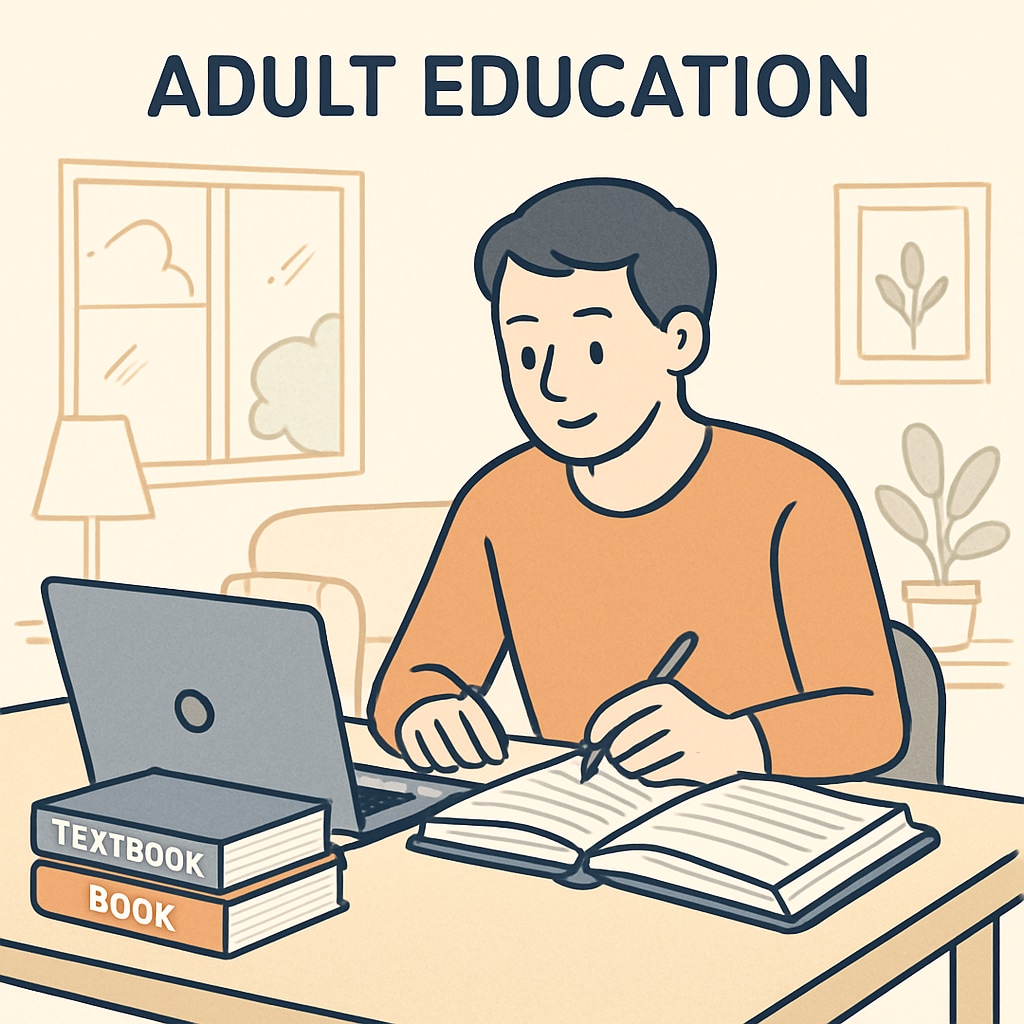Education, age, and programming—three concepts that might appear unrelated at first glance, but together they represent a powerful opportunity for adults seeking personal and professional growth. Many adults are hesitant to pursue formal education later in life, believing it’s too late to start. However, education has no age limit. With the right mindset and tailored approach, starting formal education as an adult is not only feasible but also highly valuable. This article explores why adult education is essential, how it is achievable, and how to craft a personalized educational journey based on individual circumstances.
The Importance of Adult Formal Education
Formal education provides structured learning that can open doors to career advancement, personal development, and a broader worldview. For adults, the decision to pursue education can stem from various motivations: a desire to switch careers, gain new skills, or achieve a long-held personal goal.
For instance, programming—a field in high demand globally—is an excellent example of a skill that adults can learn through formal education programs. By acquiring programming skills, adults can access a wide range of opportunities in technology-driven industries. According to Wikipedia, programming forms the foundation of modern software and applications, making it a valuable skill for learners of all ages.
Moreover, adults bring unique advantages to the classroom. Their life experiences, problem-solving abilities, and practical knowledge can enhance their learning process and provide fresh perspectives in collaborative environments. As a result, adult learners often demonstrate higher levels of motivation and commitment compared to their younger counterparts.

Overcoming Challenges: Is Formal Education Feasible for Adults?
While adult learners face unique challenges, such as balancing work, family, and study, these obstacles can be managed with strategic planning. One key factor in making education feasible is flexibility. Many institutions now offer evening classes, online programs, and part-time degrees designed to accommodate the schedules of working adults.
Financial constraints are another concern for many prospective learners. However, scholarships, grants, and employer-sponsored training programs can make education more accessible. For example, organizations often fund programming courses to upskill employees, as programming is increasingly relevant across industries. As Britannica highlights, education is a lifelong process that adapts to the needs of society and individuals alike, making it possible for learners to access resources tailored to their situations.
Additionally, modern technology has made self-paced learning more accessible than ever. Platforms like Coursera and edX offer a variety of courses, including programming, that learners can complete at their own convenience. This flexibility ensures that even the busiest adults can find time to pursue formal education.

Creating a Personalized Education Pathway
Starting formal education as an adult requires careful planning and a clear understanding of one’s goals. Here are some steps to help craft a personalized educational pathway:
- Identify Your Goals: Determine what you hope to achieve through education, whether it’s career advancement, personal growth, or acquiring a specific skill like programming.
- Research Your Options: Explore programs and institutions that align with your goals. Look for flexible schedules, affordable tuition, and relevant curricula.
- Leverage Your Strengths: Use your life experiences and existing skills to your advantage. For example, problem-solving abilities and time management skills can enhance your learning experience.
- Seek Support: Build a support network of family, friends, and mentors who can encourage and guide you throughout your educational journey.
- Stay Committed: Consistency is key. Break your goals into manageable steps and celebrate small achievements along the way.
By following these steps, adults can create a realistic and rewarding educational journey tailored to their unique circumstances and aspirations.
The Role of Programming in Adult Education
Programming serves as an excellent example of a skill that adults can pursue through formal education. It offers a combination of creativity, logic, and problem-solving, making it both challenging and rewarding. Furthermore, programming skills are in high demand, providing adults with the opportunity to transition into lucrative careers in technology.
For those new to programming, many beginner-friendly courses are available. These courses often start with foundational concepts such as algorithms and data structures and progress to more advanced topics like web development and software engineering. Additionally, programming can be learned through a variety of formats, including in-person classes, online tutorials, and boot camps.
As adults embark on their programming journey, they can apply their existing knowledge and experiences to solve real-world problems. This practical application not only enhances learning but also strengthens their ability to contribute meaningfully to the workforce.
In conclusion, starting formal education as an adult is a powerful way to achieve personal and professional growth. By overcoming challenges, leveraging unique life experiences, and crafting a personalized education pathway, adults can unlock new opportunities and realize their full potential. Whether it’s programming or another field of interest, the journey of lifelong learning is both valuable and achievable.
Readability guidance: The article uses short paragraphs, bullet points, and accessible language to ensure clarity. Active voice and transition words enhance readability, while external links provide additional information. Images complement the text, illustrating the flexibility and value of adult education.


